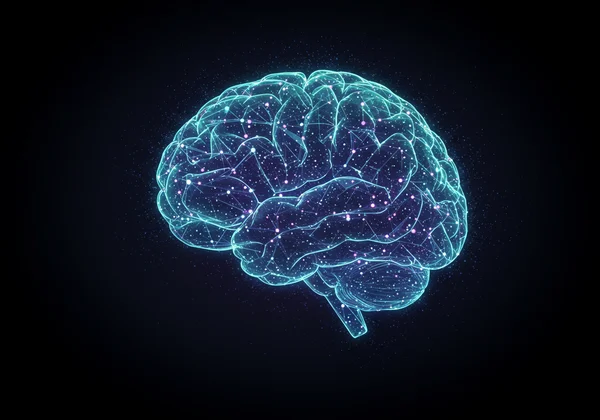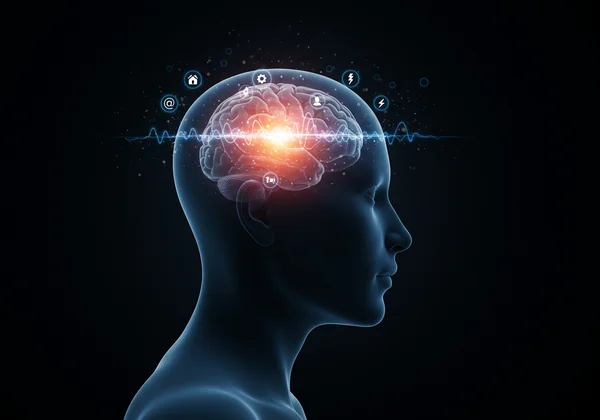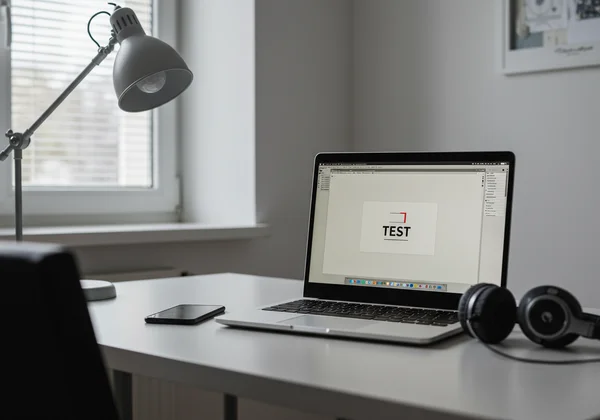Cognitive Test Preparation: Get Your Best Baseline
October 27, 2025 | By Audrey Fletcher
Taking a cognitive test can feel a bit like a pop quiz you didn't know was coming. It's natural to wonder, "Should I study?" or "What if I don't get a good score?" These are valid questions, but the goal of a cognitive assessment isn't to pass or fail. It’s about getting a clear, accurate snapshot of your brain's current abilities. So, how can I best prepare for a cognitive test? This guide will walk you through five simple, science-backed steps to ensure your results are a true reflection of you, free from the influence of stress, fatigue, or distractions.
The key is preparation, not practice. By creating the right conditions, you empower yourself to perform at your best and gain meaningful insights. When you're ready, you can start your assessment with confidence.

The Truth About "Studying" for a Cognitive Test
One of the most common questions people have is whether they should "study" for a cognitive test. The short answer is no, and it's important to understand why. Unlike an academic exam that tests your knowledge of specific facts, a cognitive assessment evaluates the underlying processes your brain uses to think, learn, and remember.
Why Memorization Isn't the Goal of Cognitive Assessments
Trying to memorize answers or "game" a cognitive test is counterproductive. These assessments are designed by neuropsychologists to measure fluid skills like problem-solving, attention, and processing speed. The tasks are often novel, meaning you haven't seen them before, so prior knowledge is not the focus. The real objective is to establish an accurate baseline of your cognitive health, which can be monitored over time. Preparing is about ensuring that baseline is not artificially lowered by external factors.
What Our Cognitive Assessments Truly Measure
A comprehensive tool like the CognitiveTest.me assessment is designed to provide a holistic view of your cognitive profile. It doesn't just measure one or two skills; it evaluates 22 distinct cognitive abilities. These include everything from your short-term memory and spatial perception to your reasoning and coordination skills. Understanding this helps shift the focus from "passing a test" to "understanding my unique cognitive strengths and challenges."
Tip 1: Prioritize Rest for Optimal Brain Function
If there's one single most effective 'secret weapon' for optimal cognitive performance, it's a truly good night's sleep. Your brain works incredibly hard during the day, and sleep is when it repairs, consolidates memories, and recharges for the tasks ahead. Heading into an assessment while fatigued is like trying to run a race with your shoelaces tied together.

The Scientific Link Between Sleep and Cognitive Performance
Research consistently shows that sleep deprivation significantly impairs attention, executive function, and memory. During deep sleep, your brain clears out metabolic waste products that accumulate while you're awake and strengthens the neural connections that form memories. A well-rested brain is quicker, sharper, and more resilient when faced with challenging mental tasks.
Practical Steps for a Restful Night Before Your Assessment
To set yourself up for success, aim for 7-9 hours of quality sleep the night before your test. Here are a few practical tips:
- Avoid caffeine and alcohol in the hours leading up to bedtime.
- Establish a relaxing pre-sleep routine, such as reading a book or taking a warm bath.
- Make sure your bedroom is dark, quiet, and cool.
- Put away screens like phones and tablets at least 30 minutes before you plan to sleep, as the blue light can disrupt your natural sleep cycle.
Tip 2: Create an Optimal & Distraction-Free Environment
Your environment plays a massive role in your ability to focus. A cognitive test requires sustained concentration, and every interruption—a phone notification, a television in the background, a knock on the door—can break your flow and impact your results. Creating a dedicated, quiet space is a non-negotiable step in your preparation.

Setting Up Your Ideal Online Cognitive Testing Space
Before you begin, find a place where you won't be disturbed for the duration of the test (our assessment typically takes 30-40 minutes). This could be a home office, a quiet corner of your living room, or any space where you can close the door. Ensure you have a comfortable chair, good lighting, and a stable surface for your computer or tablet.
Minimizing Interruptions During Your Assessment
Take a few proactive steps to eliminate potential distractions:
- Put your smartphone on silent and place it out of sight.
- Close all other tabs and applications on your computer.
- Let family members or roommates know that you need a block of uninterrupted time.
- If you live in a noisy environment, consider using noise-canceling headphones.
Tip 3: Effectively Manage Cognitive Test Anxiety
It's completely normal to feel a little nervous before taking any kind of test. This feeling, known as performance anxiety, can actually be a hindrance if it becomes overwhelming. When you're stressed, your body releases cortisol, a hormone that can interfere with the brain regions responsible for memory and executive function.

Understanding Test Performance Pressure and Its Impact
Feeling pressure to perform well can create a cycle of worry that distracts you from the task at hand. You might start second-guessing your answers or rushing through tasks, leading to simple mistakes. Remember, the goal of the free online cognitive test is discovery, not judgment. Re-framing the experience as an opportunity to learn about yourself can significantly reduce this pressure.
Simple Techniques to Calm Your Nerves Before a Cognitive Test
If you feel anxious before you start, try a simple grounding technique. One of the most effective is box breathing:
- Inhale slowly through your nose for a count of four.
- Hold your breath for a count of four.
- Exhale slowly through your mouth for a count of four.
- Hold your breath for a count of four. Repeat this cycle 3-5 times. This simple exercise can slow your heart rate, calm your nervous system, and bring your focus back to the present moment.
Tip 4: Fuel Your Brain with Good Nutrition & Hydration
Think of your brain as a high-performance engine; it needs premium fuel to run efficiently. What you eat and drink in the hours leading up to your cognitive assessment can have a direct impact on your focus, energy levels, and mental clarity.
The Link Between Diet and Brain Health for Focus
You don't need a special diet, but it's wise to avoid a heavy, greasy meal right before your test, as it can leave you feeling sluggish. Opt for a balanced meal containing complex carbohydrates (like whole grains), lean protein, and healthy fats (like those found in nuts or avocado). This combination provides a steady release of energy, preventing the blood sugar spikes and crashes that can lead to a "brain fog."
Staying Hydrated for Sustained Mental Clarity
Dehydration is a known enemy of cognitive function. Even mild dehydration can lead to difficulty concentrating, memory lapses, and mental fatigue. Make sure to drink a glass of water before you begin your assessment and keep one nearby. This simple act is one of the easiest ways to support your brain health and ensure you're performing at your peak.
Tip 5: Understand What to Expect from Your Cognitive Test
Finally, one of the best ways to reduce anxiety and prepare effectively is to simply understand the process. Knowing what to expect demystifies the experience and allows you to approach the assessment with a calm and focused mindset.
An Overview of the CognitiveTest.me Assessment Format
The assessment on CognitiveTest.me involves a series of engaging tasks presented on your screen. You will not be asked trivia questions or math problems that require a calculator. Instead, the tasks are designed to measure your core cognitive skills through activities like remembering patterns, identifying shapes, and reacting to on-screen prompts. The entire process is guided with clear instructions for each section.
Familiarizing Yourself with Task Types (Not Answers)
While you can't "study" the answers, you can familiarize yourself with the types of tasks involved in cognitive testing. Knowing that you will be engaging with puzzles related to memory, attention, and logic helps set your expectations. This removes the element of surprise, allowing you to dedicate all your mental energy to the tasks themselves rather than trying to figure out the format on the fly.
Ready to Get Your True Cognitive Picture?
Preparing for a cognitive test isn't about achieving a perfect score; it's about creating the perfect conditions to get an honest one. By ensuring you are well-rested, in a quiet environment, and in a calm state of mind, you give yourself the best possible chance to see a true reflection of your cognitive abilities. This accurate baseline is an invaluable tool for understanding your brain health, tracking changes over time, and making informed decisions about your well-being.
When you feel prepared, we invite you to discover your results and take the first step toward a deeper understanding of your mind.
Disclaimer: This cognitive test is a screening tool and is not a substitute for a professional medical diagnosis. The results can provide valuable insights, but they should be discussed with a qualified healthcare professional if you have concerns about your cognitive health.
Frequently Asked Questions About Cognitive Testing
Can I take a cognitive test online for free?
Yes, you can. Platforms like this one offer a comprehensive, scientifically validated online cognitive test that you can take online for free. This provides an accessible first step for anyone wanting to establish a cognitive baseline without the cost or time commitment of a clinical visit.
What exactly does a cognitive test consist of?
A comprehensive cognitive test consists of a series of standardized tasks designed to measure various brain functions. On our platform, this includes 22 different cognitive skills, such as working memory, attention, processing speed, and problem-solving. You'll interact with on-screen activities that might involve remembering sequences, identifying patterns, or reacting quickly to stimuli.
What is considered a "good" cognitive test score?
Scores are not about "good" or "bad." Cognitive test results are typically compared to a normative database—a large sample of people in a similar age and demographic group. A report from a tool like the CognitiveTest.me platform will show you where your performance in different areas falls relative to your peers, highlighting your personal cognitive strengths and areas that may warrant more attention.
How difficult is a typical online cognitive test?
The difficulty is adaptive. The tasks are designed to be challenging enough to measure the upper limits of your abilities but not so difficult as to be discouraging. Everyone will find some tasks easier and others more challenging, which is a normal part of assessing a wide range of cognitive skills. The primary goal is to maintain focus and try your best on each task.
What if my cognitive test results aren't what I expected?
An unexpected result is not a reason to panic. It’s simply a piece of data. Your performance can be influenced by many factors, including the preparation steps outlined in this article. The result is a starting point—a baseline from which you can track changes. If you have any concerns about your results, the most important next step is to share them with a doctor or a qualified healthcare professional for further evaluation.